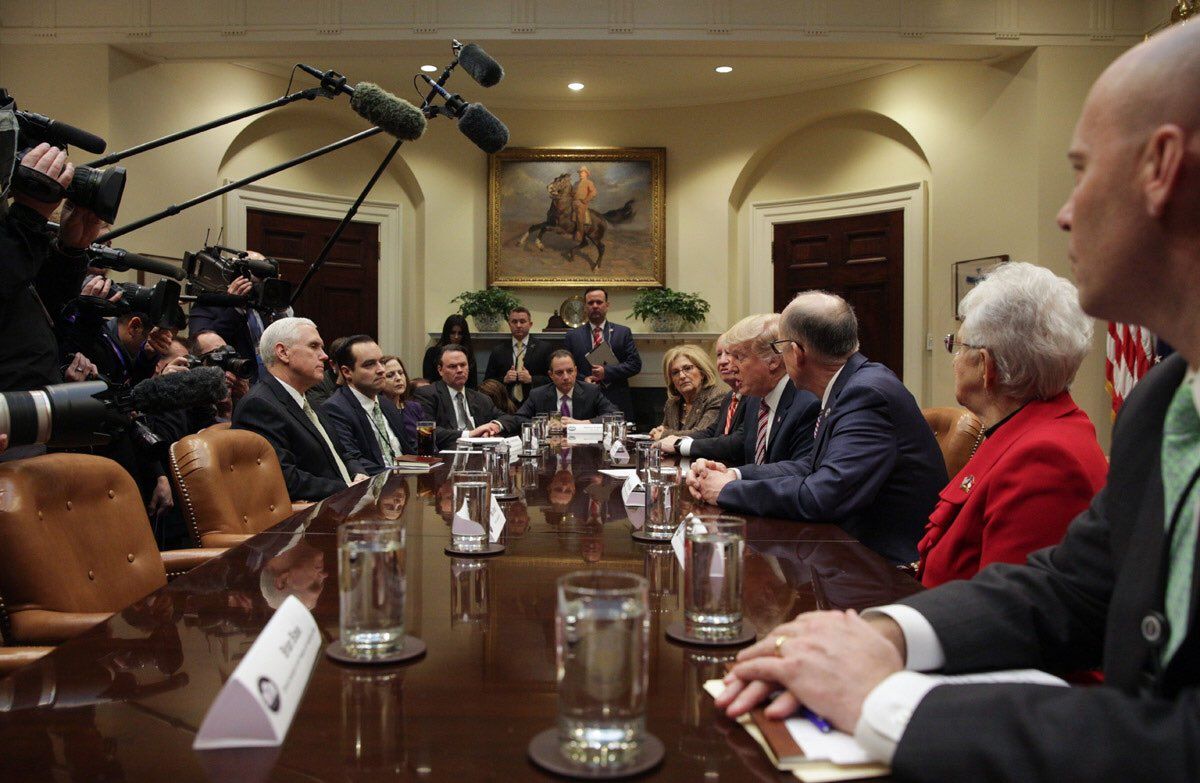Views expressed in opinion columns are the author’s own.
In 2004, Jeff Zucker, then-head of NBC Entertainment, turned Donald Trump into a reality TV star with the premiere of The Apprentice. At his direction, Trump was brought on to boost ratings and generate publicity — which he did, to the benefit of both men. Now, one is president of the United States, and the other is president of CNN.
Trump and Zucker’s past connection is, in many ways, symbolic of the relationship between the news media and Trump. Regardless of the appearance of conflict between the two, under the surface is a mutually beneficial relationship.
Throughout Trump’s presidential campaign, the press was there every step of the way to give him the publicity he desired for every outrageous comment he made. Research from Harvard’s Shorenstein Center showed the media’s initial coverage of Trump largely focused on his campaign’s momentum, and the amount of coverage he received was abnormal for a candidate who had such a low standing in the polls. The press coverage, the center concluded, was a factor in Trump’s improvement in the polls.
Caught up in the spectacle of the Trump candidacy, the media gave Trump tons of airtime, which helped push him to victory. Publicity is crucial for any candidate, and the press gifted Trump with all the publicity he could have ever asked for. By one estimate, Trump’s campaign received free airtime equal to about $5 billion worth of advertising. Cable news channels had a habit of broadcasting the entirety of Trump’s rallies without interruption, despite knowing he would frequently make false, inflammatory statements.
Zucker has since admitted it was a mistake to have CNN run Trump’s rallies uninterrupted. But he knew what he was doing when he made that call, and it certainly wasn’t a mistake at the time: CNN and other cable stations, as well as the major networks, saw their ratings skyrocket during the election season.
That boost hasn’t stopped with the end of the election, nor is it restricted to television. Both the networks and cable news channels have continued their streaks of excellent ratings during the Trump presidency, due in large part to their unyielding coverage of his every move. Likewise, major newspapers have seen an increase in subscriptions and web traffic.
This phenomenon illustrates how the structure of the news media isn’t conducive to providing a public service, particularly by way of informing people on the issues. Like any other industry, it’s constrained by a need to maximize profits, which translates to a general prioritization of spectacle over substance.
The absurdity of the Trump candidacy and presidency has given the media a singular opportunity. The New York Times Co.’s stock price, for example, has nearly tripled since the election.
This is not to say journalists and others involved in the media like or respect Trump in any way. During the 2016 election, just two of the 100 highest-circulating newspapers endorsed him. Outside of Fox News and other far-right outlets, you would be hard-pressed to find a collection of Trump-supporting journalists and executives in the mainstream media. But that doesn’t negate the fact that the media has benefited enormously from Trump’s presidency.
The public animosity between Trump and the media — Trump has frequently used the phrase “enemy of the people” when describing the press — belies a more complicated relationship. As disgraced former CBS CEO Les Moonves said of Trump in 2016, “I’ve never seen anything like this, and this is going to be a very good year for us … It’s a terrible thing to say. But, bring it on, Donald. Keep going.”
Adding to the perception of a deep division between the administration and the press, Zucker can now be found criticizing Trump in retaliation to Trump’s attacks on CNN. But regardless of what they think of each other now, Zucker made Trump a TV star — and his network and the rest of the media helped make him president.
Zachary Jablow, opinion editor, is a sophomore economics and government and politics major. He can be reached at zachjablow@gmail.com.



